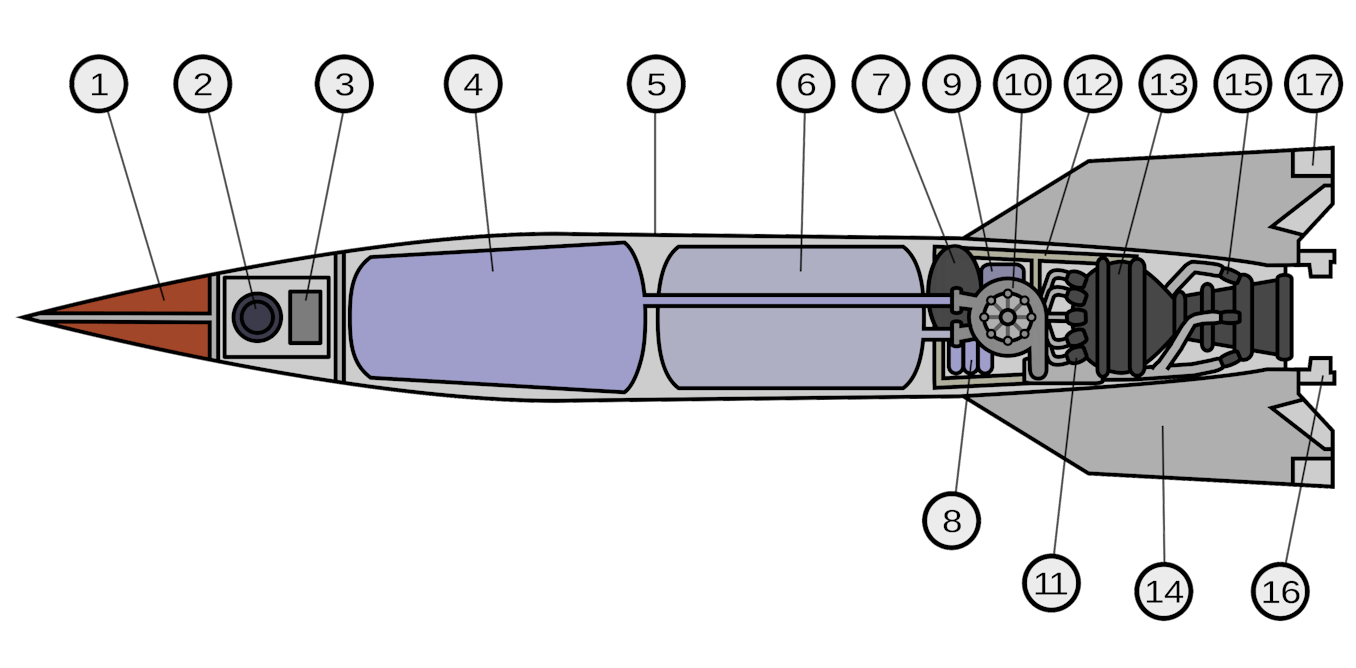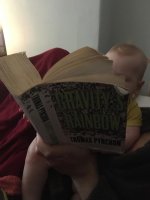You are using an out of date browser. It may not display this or other websites correctly.
You should upgrade or use an alternative browser.
You should upgrade or use an alternative browser.
Gravity's Rainbow
- Thread starter william kent
- Start date
Mr. Tea
Let's Talk About Ceps
Yeah, but have you finished it twice? 🤓i am one of the Elect. the Twelve. those who have finished The Book.
luka
Well-known member
u had to read it twice cos u didnt understand itYeah, but have you finished it twice? 🤓
Mr. Tea
Let's Talk About Ceps
Luka notching another score for himself on the Luka vs Tea zinger tally. Current score:
ME: 1000000000000
TEA: 0, HAHA THE BIG FAT OAF!!!!!!
Benny Bunter
Well-known member
I wouldn't mind giving this a go at some point but then I see people on this thread saying it's a baggy stoner novel and it's putting me right off.
It's also absolutely fucking great with lots of fantastic bits.I wouldn't mind giving this a go at some point but then I see people on this thread saying it's a baggy stoner novel and it's putting me right off.
I don't really agree that much with the criticisms above tbh. It's certainly overlong and a bit diffuse but the wackiness doesn't annoy me - I like some of the invention it enables (the Banana breakfast comes to mind). Certainly give me this over Conservative vision of the novel like Ian Fucking McEwan any day.
Benny Bunter
Well-known member
Maybe better to start with one of his shorter ones? But then there doesn't seem to be a lot of consensus on which are his best apart from GR.
Clinamenic
Binary & Tweed
Reading GR I got a similar sense of rhapsodic maximalism as I did from Ulysses, in terms of how the author has built up so sprawling and varied an acumen of technical knowledge, that they can just drift through their own created world as a multiformal polyglot of sorts, where the reader gets the sense that this generation of technical and atmospheric detail can go on forever. Almost like a fractal, in the sense of there being an infinite realm of detail to explore, but without the self-similarity.
Although I do think Pynchon, just being situated later in history (or later in the metanarrative) and having more to draw from, was deeper down the rabbithole than Joyce - which makes sense, when you consider Joyce in terms of modern literature and Pynchon in terms of postmodern. Ulysses had a sense, to me at least, of grappling with a cosmological orthodoxy, namely Catholicism, whereas GR seemed like such a ground was nowhere to be found, as if the whole thing lacked a sort of center of gravity and could instead propel itself freely in any direction.
Although I do think Pynchon, just being situated later in history (or later in the metanarrative) and having more to draw from, was deeper down the rabbithole than Joyce - which makes sense, when you consider Joyce in terms of modern literature and Pynchon in terms of postmodern. Ulysses had a sense, to me at least, of grappling with a cosmological orthodoxy, namely Catholicism, whereas GR seemed like such a ground was nowhere to be found, as if the whole thing lacked a sort of center of gravity and could instead propel itself freely in any direction.
woops
is not like other people
first post that's actually made me feel like finishing this bookReading GR I got a similar sense of rhapsodic maximalism as I did from Ulysses, in terms of how the author has built up so sprawling and varied an acumen of technical knowledge, that they can just drift through their own created world as a multiformal polyglot of sorts, where the reader gets the sense that this generation of technical and atmospheric detail can go on forever. Almost like a fractal, in the sense of there being an infinite realm of detail to explore, but without the self-similarity.
Although I do think Pynchon, just being situated later in history (or later in the metanarrative) and having more to draw from, was deeper down the rabbithole than Joyce - which makes sense, when you consider Joyce in terms of modern literature and Pynchon in terms of postmodern. Ulysses had a sense, to me at least, of grappling with a cosmological orthodoxy, namely Catholicism, whereas GR seemed like such a ground was nowhere to be found, as if the whole thing lacked a sort of center of gravity and could instead propel itself freely in any direction.
william kent
Well-known member
Reading GR I got a similar sense of rhapsodic maximalism as I did from Ulysses, in terms of how the author has built up so sprawling and varied an acumen of technical knowledge, that they can just drift through their own created world as a multiformal polyglot of sorts, where the reader gets the sense that this generation of technical and atmospheric detail can go on forever. Almost like a fractal, in the sense of there being an infinite realm of detail to explore, but without the self-similarity.
Moby-Dick's like this too.
Clinamenic
Binary & Tweed
I haven't read that yet, but so far I'm loving this canon of "encyclopedia texts"Moby-Dick's like this too.
woops
is not like other people
wouldnt be complete without La Vie mode d'emploi also available in English as Life a user's manual by Georges PerecI haven't read that yet, but so far I'm loving this canon of "encyclopedia texts"
william kent
Well-known member
A couple of the better articles published for the 50th anniversary.

 theconversation.com
theconversation.com
:quality(75)/https%3A%2F%2Fassets.lareviewofbooks.org%2Fuploads%2F202302Gravitys-Rainbow.jpg)
 lareviewofbooks.org
lareviewofbooks.org
Also Bloom's intro to his book on Pynchon.
The not unimpressive polemic of Norman Mailer—-that Fascism always lurks where plastic dominates—-is in Pynchon not a polemic but a total vision. Mailer, for all his legitimate status as Representative Man, lacks invention except in Ancient Evenings, and there he cannot discipline his inventiveness. Pynchon surpasses every American writer since Faulkner at invention, which Dr. Samuel Johnson, greatest of Western literary critics, rightly considered to be the essence of poetry or fiction. What can be judged Pynchon’s greatest talent is his vast control, a preternatural ability to order so immense an exuberance at invention. Pynchon’s supreme aesthetic quality is what Hazlitt called gusto, or what Blake intended in his Infernal proverb: “Exuberance is Beauty.”

Join the Counterforce: Thomas Pynchon’s postmodern epic Gravity’s Rainbow at 50
Short-circuiting the language of literary value, permanently wrongfooting the custodians of taste, Gravity’s Rainbow proposes a new way of thinking about what we treasure most.
 theconversation.com
theconversation.com
:quality(75)/https%3A%2F%2Fassets.lareviewofbooks.org%2Fuploads%2F202302Gravitys-Rainbow.jpg)
History Is Hard to Decode: On 50 Years of Thomas Pynchon’s “Gravity’s Rainbow” | Los Angeles Review of Books
Thomas Pynchon’s novel “Gravity’s Rainbow,” a half century old today, has never seemed more relevant.
Also Bloom's intro to his book on Pynchon.
The not unimpressive polemic of Norman Mailer—-that Fascism always lurks where plastic dominates—-is in Pynchon not a polemic but a total vision. Mailer, for all his legitimate status as Representative Man, lacks invention except in Ancient Evenings, and there he cannot discipline his inventiveness. Pynchon surpasses every American writer since Faulkner at invention, which Dr. Samuel Johnson, greatest of Western literary critics, rightly considered to be the essence of poetry or fiction. What can be judged Pynchon’s greatest talent is his vast control, a preternatural ability to order so immense an exuberance at invention. Pynchon’s supreme aesthetic quality is what Hazlitt called gusto, or what Blake intended in his Infernal proverb: “Exuberance is Beauty.”
Clinamenic
Binary & Tweed
I just named my Diablo Eternal character ‘Blicero’

